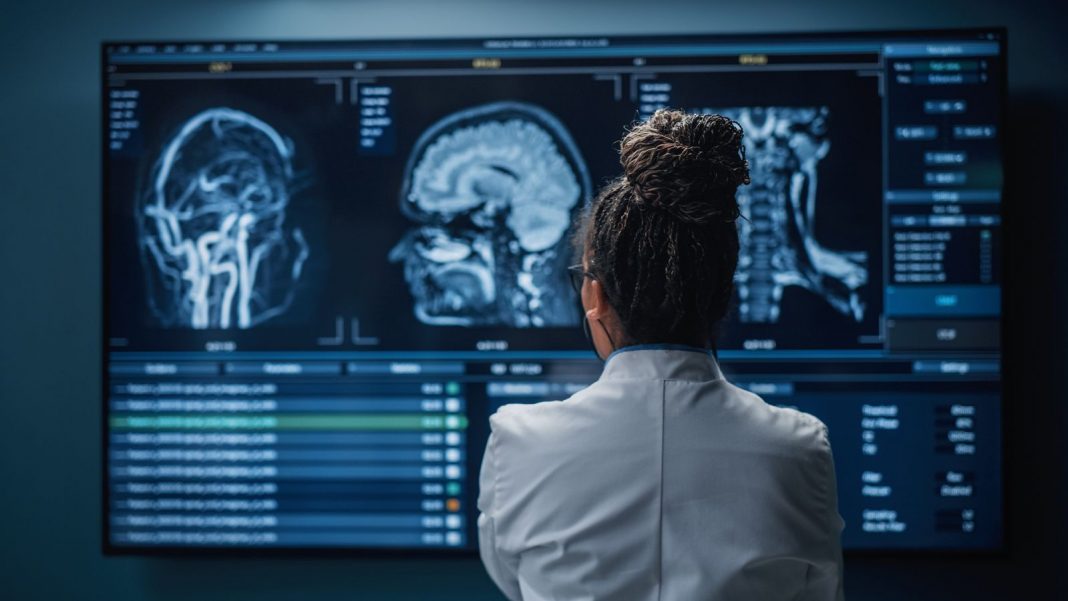A third of long COVID patients sustained damage to multiple organs five months after infection, a study has found.
Scans of patients who were treated in hospital for COVID-19 showed higher rates of damage to the lungs, brain and kidneys compared with the non-COVID control group.
Lung injuries were almost 14 times higher among long COVID patients, while abnormal findings involving the brain and kidneys were three and two times higher respectively.
How badly the organs were affected was often due to the severity of their infection, their age and other diseases in the body.
Study lead Dr Betty Raman said people who had more than two organs affected were “four times more likely to report severe and very severe mental and physical impairment”.
Tanysha Dissanayake, a former tennis prodigy forced into retirement by long COVID, told Sky News she was pleased people were starting to understand “the true horrible nature of this illness”.
“I have also had issues with multiple organs such as heart, liver, lungs and uterus, all stemming from long COVID,” she said.
“I’m glad people are starting to take it all seriously.”
Read more:
Unusual case of long COVID turns man’s legs blue
How long COVID ruined my life
Please use Chrome browser for a more accessible video player

0:42
Long COVID: ‘I’m grieving my life’
Dr Margaret O’Hara, a founding trustee of Long Covid Support, said the results confirm evidence that COVID causes damage to a large number of organs and systems in the body.
“It is abundantly clear now that it is not simply a respiratory virus and that it is causing long term harm to the health of individuals throughout the population, including the huge numbers of people who were not hospitalised in the acute phase of infection,” she said.
The findings, based on analysis of more than 250 patients who had COVID hospital treatment, are part of the C-MORE (Capturing the MultiORgan Effects of COVID-19) study and were published in The Lancet Respiratory Medicine.
This content is provided by Spreaker, which may be using cookies and other technologies.
To show you this content, we need your permission to use cookies.
You can use the buttons below to amend your preferences to enable Spreaker cookies or to allow those cookies just once.
You can change your settings at any time via the Privacy Options.
Unfortunately we have been unable to verify if you have consented to Spreaker cookies.
To view this content you can use the button below to allow Spreaker cookies for this session only.
Click to subscribe to the Sky News Daily wherever you get your podcasts
Participants were recruited across 13 sites in the UK and had MRI scans covering the heart, brain, lungs, liver and kidneys an average of five months after leaving hospital.
While some symptoms could be clearly linked to injuries that showed on the scans – for example, chest tightness and a cough with lung MRI abnormalities – not all symptoms could be directly linked to the scans.
The research confirmed that damage to multiple organs was more likely in patients who had reported severe effects on their physical and mental health after COVID.
“Our findings also highlight the need for longer term multidisciplinary follow-up services focused on pulmonary and extrapulmonary health (kidneys, brain and mental health), particularly for those hospitalised for COVID-19,” Dr Raman said.







